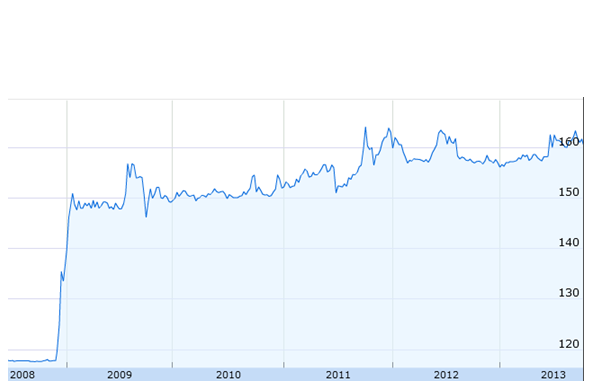As a frontier market, the countries of Africa represent both tremendous opportunities and tremendous risks. On the risk side of the ledger are all the usual complications of international trade and investment compounded by the problems inherent in a developing, emergent continental market consisting of 54 countries and 1.1 billion people – it’s a lot to keep track of.
AFKInsider has compiled news you need to know now in order to slim down your currency risk in the week ahead. Let’s see what’s happening out there.
Last week the big news in African Forex circles was the decision by the Nigerian Central Bank (CBN) to impose new restrictions on the importation of foreign currency into Nigeria. The move, which followed an earlier decision to abrogate the licenses of 20 Bureaux de Change operators in September, is aimed at supporting the naira as it continues to struggle to maintain value against the U.S. dollar.
The new rules, which aren’t expected to significantly impact major commercial operators and multinationals, will require importation of foreign currencies – primarily U.S. dollars – to be authorized beforehand by the Central Bank. The goal, say officials, is to crack down on money laundering at exchange bureaus and small financial institutions, both of which had seen a huge increase of late in customer demand for dollars.
While loose oversight of these institutions is ostensibly the reason put forward by the CBN as to why the rule was put in place, the real reason is likely the CBN’s continuing inability to prop up the naira’s value using traditional methods of currency intervention. This lack of oversight was in many ways a feature, not a bug of these institutions as it allowed Nigerians seeking to cash in naira for dollars to easily escape the falling value of their country’s currency with little in the way of oversight by the government.
As a result, Nigeria has been facing a slow yet steady dollarization of its economy as average Nigerians flee the naira for the surer strength and stability of the dollar. Indeed, so bad has it become that Nigeria is of late the world’s largest importer of U.S. dollars and officials there are worried over the prospect of the economy’s further dollarization.
How well will these developments work in combating the naira’s continuing weakness on global foreign exchange markets? Temporarily, one should expect the naira to increase somewhat in value as easy access to dollars dries up and Nigerians are forced to use naira for ordinary transactions – therefore increasing demand for the local currency. Whether this can work longer term, however, is an open question as the fundamental reasons why Nigerians are abandoning the naira remains unchecked.
At heart, the cause of the naira’s weakness continues to be the overwhelming reliance of the country on petroleum exports. When the price of oil goes up, the Nigerian economy improves and demand for – and thus the value of – its currency increases relative to the dollar, euro, and pound sterling. When the price of oil goes down, the opposite occurs, and with the collapse of commodity prices in 2008 the naira was crushed by the plummeting price of oil, which sank from $147 to the barrel to below $50 per barrel at the depths of the financial crisis.
The naira (see chart) tumbled accordingly, collapsing from just under 120–to-the-dollar before the crisis to 150 after; a 25-percent depreciation. Since then, the situation for the naira has only gotten worse as lackluster demand for oil, particularly from the U.S., has been a major headwind on the naira’s value. The government attempted to stem the collapse through repeated interventions, for example using foreign exchange reserves to buy naira, but the currency has resisted all efforts to prop it up.
USD / NGN 
The latest attempt to do so, which occurred between May and June of this year, saw Nigeria’s central bank spend $3.02 billion of its precious foreign currency reserves to little apparent effect. Indeed, the currency dropped somewhat further. Given this inability to manage the currency via traditional over-the-counter foreign exchange sales, it is likely what precipitated the CBN’s crackdown on the exchange bureaus in September and the just-issued rule requiring central bank authorization to import foreign currency was the realization something more radical needed to be done.
Will it work? Unless the price of oil increases substantially in the near term it seems unlikely that the naira will significantly rally or even stabilize at its current level. Thus, if the government remains committed to a “strong” naira policy, investors should expect CBN market interventions to get bigger and government-imposed restrictions on capital movements to become more pronounced. The alternative is a further devaluing of the country’s currency.
Jeffrey Cavanaugh holds a Ph.D in political science with a specialization in international relations from the University of Illinois at Urbana-Champaign. Formerly an assistant professor of political science and public administration at Mississippi State University, he writes on global affairs and international economics for AFK Insider, Mint Press News and BAM South.